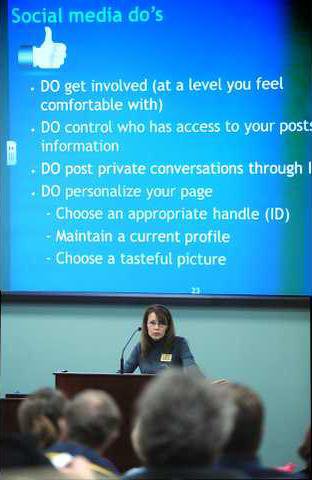Distance learning classes are showing up virtually everywhere.
Through online courses, students can log into class from anywhere at any time, earning a degree without ever stepping foot on a campus.
It's a powerful tool that the University System of Georgia thinks will help the state increase the number of Georgians with college education.
System Chancellor Hank Huckaby recently announced that a new group will look at how universities and colleges use technology in distance education in order to make recommendations on ways to better serve students.
"We have to make better use of our distance education resources and ramp up our efforts to help us meet state workforce needs," Huckaby said in a press release.
The task force will identify key distance learning goals to increase the number of Georgians with some college education from 42 percent to 60 percent, the estimated workforce needs of the state in 2020, according to projections from Georgetown University's Center on Education and Workforce. The task force will complete its review of the system by this summer.
Distance learning isn't just for public colleges, though.
"Primarily, it's exactly the same content that a person would see in a traditional face-to-face class, however it's done electronically," said David Barnett, interim dean of education and associate vice president of Brenau University.
U.S. News and World Report recently ranked Brenau in the top 10 nationally for its online master's program in education.
Nearly 500 students are taking 100 percent of their classes online at Brenau. Each semester 1,600 students, more than 50 percent of the student population, take at least one class online.
"It really proves what we've been saying, that online is going to be done a lot more extensively in the future and you've got to be good at it," Morrison said.
Gainesville State College currently has 1,054 students who are taking at least one course online. The college is taking steps to offer complete online degrees.
Chaudron Gille, associate vice president of academic affairs at Gainesville State said the number of students enrolled in online courses has steadily increased over the last few semesters.
"I think all of us in education recognize that the demand is certainly there from the start and to serve our students well we need to have online offerings," Gille said.
Students only taking online courses are typically graduate or evening students with time restraints like a family or full-time job.
Kimberly Barnett is a seventh-grade language arts teacher at McConnell Middle School in Gwinnett County who is earning her master's degree in middle education online from Brenau.
"It's very convenient but it's also more a lot of reading articles ... and looking into what you're doing, how to improve it and finding things out on your own," Kimberly Barnett said.
She said being able to work and go to school at the same time are making her a better teacher because she is able to instantly use what she's learned.
That instant access to information can make teaching the course more difficult. Because the students can access the class at any time, instructors may find themselves spending more time on an online class than they would in a traditional classroom. Students tend to expect instructors to get back with them on questions and assignments in a relatively short time.
Gille said the demands of teaching an online course can be challenging for a first-time instructor.
"I think it's a learning curve for everyone. I don't think all faculty members are interested in teaching online, and it's not appropriate for all students either. There are different ways of learning and different ways of teaching," Gille said.
Online instructors can prepare for teaching online courses by taking courses themselves.
Brenau requires its online instructors to complete two training courses.
"They really take the course from the student perspective so they can understand what it's like to use the tools," David Barnett said.
Some students find they prefer online courses to traditional ones.
Brittany Aikens an early childhood education student at Brenau University said she loves taking classes online. She saves money on her commute and doesn't have the distractions of a traditional class. She said learning online is easier for her.
David Barnett said the trend is likely to continue.
"It's the way people are communicating in a social setting anyway. People are becoming more accustomed to this type of communication and interaction and have the ability to learn from sources all over the planet," Barnett said.

